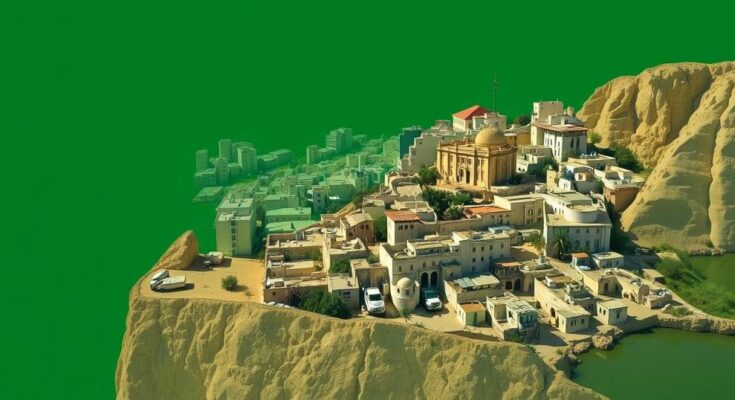Algeria is on the brink of needed economic transformation under President Tebboune’s leadership. While there have been strides in infrastructure and agriculture, high youth unemployment and an over-reliance on hydrocarbons remain critical challenges. The country has untapped potential that could be realized with strategic reforms aimed at diversification and investment in key sectors, paving the way for a more sustainable future.
Algeria stands at a critical juncture in its economic journey. After President Abdelmadjid Tebboune’s reelection, the country has initiated noteworthy reforms focusing on infrastructure, housing, and agriculture. Despite these advancements, significant challenges persist, including a lack of economic diversification and high unemployment, particularly among the youth, with a staggering 31 percent unemployment rate in 2023. The roots of Algeria’s economic woes lie in decades of socialist policies and excessive reliance on hydrocarbon revenues, resulting in an economy teetering between state control and market freedom. Moreover, historical anti-corruption measures have left many potential entrepreneurs hesitant to innovate or take risks. Algeria, endowed with vast natural resources, needs to pivot from being a mere petrostate to unlocking its full economic potential through diversification. Algeria’s vast natural gas reserves make it a key player on the global stage, being the world’s fourth-largest gas exporter, yet this capital-intensive sector has struggled to foster meaningful job creation. By cultivating an entrepreneurial spirit and attracting investments in varied sectors like agriculture, tourism, and digital services, Algeria can begin to dismantle its dependency on oil. Post-independence, Algeria aimed to build a robust industrial base, but its overwhelming reliance on hydrocarbons has dictated its economic trajectory for too long. With hydrocarbon revenues constituting about 60 percent of government income, the volatility of oil prices poses substantial risks to fiscal stability. Engaging in a concerted effort to rejuvenate its economy is essential, especially as Algeria transitions from the economic struggles of past decades marked by terrorism and inflation. To achieve a robust economic future, Algeria must balance its ambition for sovereign control with the benefits of foreign investment. This could involve a model of state capitalism in critical sectors while allowing open foreign investment in others, similar to China’s economic approach. Algeria needs to carve out a clear vision for its economic overhaul while embracing strategic external partnerships. A well-defined Algeria 2030 plan should emerge, establishing key performance indicators for transparent economic reform. This roadmap would drive growth across crucial sectors, from energy to technology, informing international investors of the country’s commitment to modernization and openness. The ability to unite citizens behind this ambitious vision will be pivotal in ensuring its success. Additionally, Algeria may benefit from establishing a sovereign wealth fund to judiciously invest its hydrocarbon and mineral revenues. Such a fund could stabilize the economy and promote technological advancement within its borders, allowing the country to harness its resources effectively while maintaining fiscal responsibility. Creating special economic zones can spur investment and job creation, easing bureaucratic hurdles notorious in the current business environment. Drawing inspiration from success stories like Shenzhen, Algeria can demonstrate its eagerness to welcome foreign participation in vital sectors like tourism and logistics. The crossroads upon which Algeria stands today offers a unique opportunity for President Tebboune to articulate a transformative vision. Seizing this moment could set Algeria on a course toward an economically sustainable future, rich with potential and innovation.
Algeria’s current economic landscape is shaped by its status as a petrostate, with vast reserves of natural gas but struggling under high unemployment and limited diversification. Historical socialist policies and corruption have created a complex environment for entrepreneurship and growth. As Algeria reevaluates its path forward, addressing these challenges while capitalizing on its resource wealth could lead to a more balanced and robust economy.
In summary, Algeria’s economic future hinges on implementing meaningful reforms to foster diversification, attract foreign investment, and empower its citizens economically. By establishing a clear vision for transformation and embracing a mix of state control with market openness, Algeria can potentially navigate its way to a prosperous and resilient economy capable of weathering global fluctuations and enhancing the lives of its people.
Original Source: foreignpolicy.com



